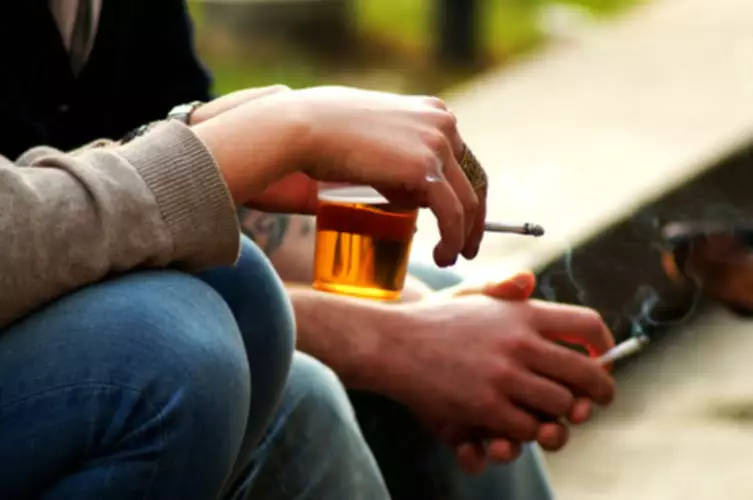
For individuals in recovery from alcoholism, cravings for sugar can be a common occurrence. Understanding the reasons behind these cravings is essential for managing them effectively and maintaining sobriety. In this section, we will explore the link between alcohol and sugar cravings, the similar neurological effects of alcohol and sugar, and the impact of alcohol on blood sugar levels. Reducing sugar intake can be beneficial for individuals in recovery from alcoholism. Consuming less sugar can help stabilize blood sugar levels and reduce the likelihood of experiencing intense cravings that can lead to relapse. In addition, consuming a balanced diet that is rich in essential nutrients can help support overall physical and mental health during recovery.

Cravings and alcohol use disorder
Understanding the link between alcoholism and sugar cravings is an important step in supporting individuals in their recovery journey. By addressing the underlying factors and implementing healthy coping strategies, recovering alcoholics can mitigate their cravings for sugar and focus on their overall well-being. Understanding why recovering alcoholics often experience intense cravings for sugar is a complex topic. There is a significant connection between alcoholism and the subsequent cravings for sugar. In this section, we will explore this connection and examine the factors that contribute to sugar cravings in individuals recovering from alcoholism.
How Intensive Outpatient Intensity Structure Helps Recovery
Moreover, dopamine’s phasic-synaptic actions modify the sensitivity of target neurons to other neurotransmitters, particularly glutamate.

How Long the Alcohol Detox Journey Endures
Alcohol is a concentrated source of calories, and when it is eliminated from the diet during recovery, the body may seek alternative sources of energy. Sugar provides a readily available source of energy, which the body can metabolize quickly. Strive to incorporate a variety of nutrient-dense foods into your diet to replenish the essential vitamins and minerals that may have been depleted during alcohol abuse. Opt for complex carbohydrates, such as whole grains and fruits, which provide a slower release of sugar into the bloodstream and help maintain stable energy levels. Additionally, make sure to include sources of protein and healthy fats in your meals to promote satiety and overall well-being. Why are sugar cravings so common in people recovering from a substance use disorder?

By addressing these biological factors, individuals in recovery can develop strategies to manage their cravings and make healthier choices. Alcohol consumption can have an impact on blood sugar levels, why do alcoholics crave sugar which may contribute to the sugar cravings experienced by recovering alcoholics. Alcohol is quickly converted into glucose in the body, causing a rapid increase in blood sugar levels. However, this insulin release can sometimes overshoot, leading to a drop in blood sugar levels, also known as hypoglycemia.

Using sugar to cope with negative affect predicted both sugar consumption and sweet craving, and alcohol craving. Poor nutrition can lead to various mental and physical health issues, including weight gain, which can result in low mood and potentially trigger a relapse to alcohol. Studies show that individuals who are overweight may experience more severe depression, making them more susceptible to alcohol relapse.
- The brain’s reward system, which is accustomed to the release of dopamine triggered by alcohol, seeks alternative sources of pleasure and reward.
- There is a significant underlying connection between addictive behaviors and sugar intake, which explains the question ‘why do recovering alcoholics crave sugar?
- Once you identify the cues, routines, and rewards that keep your habit loop on a repeat cycle, you can experiment with new routines that yield even more fulfilling rewards.
- Preliminary studies have observed increases in sugar consumption, sweet cravings, and alcohol cravings in early recovery.
- However, there are strategies that can help break the cycle and promote healthier habits.
Explore Russell Brand’s addiction journey, recovery, and advocacy for awareness in this comprehensive https://ecosoberhouse.com/ insight. Explore medication-assisted treatment (MAT) during the coronavirus pandemic and its evolving landscape for addiction care. Discover why you feel strange after doing coke, from brain chemistry to long-term addiction effects. Discover effective methods for preventing substance use and building resilience against addiction. Discover why fewer teens are receiving substance use prevention messages and the impacts on their health. Explore the factors influencing drug use tendencies in individuals, from genetics to social influences and beyond.
Navigating the Deadliest Effects of Drugs
The answer lies in the connection between sugar addiction and alcoholism, and the role of dopamine deficiency in cravings. It’s important to note that emotional and psychological factors are just a part of the complex relationship between sugar cravings and alcohol recovery. Other factors, such as the impact of alcohol on the brain and nutritional deficiencies, also contribute to these cravings. By understanding and addressing these factors, individuals in alcohol recovery can develop effective strategies to manage their sugar cravings and support their overall well-being. By understanding the nutritional deficiencies and the body’s need for quick energy, recovering alcoholics can take proactive steps to manage their sugar cravings. This may involve adopting a nutrient-rich diet, seeking guidance from healthcare professionals, and exploring healthy alternatives to satisfy their sweet tooth.
Support Our Mission
Understanding the effects of sugar on the brain can shed light on why individuals with alcohol use disorder often experience strong cravings for sugar. It’s important to note that the use of sugar as a substitute for alcohol can potentially lead to a sugar addiction. Sugar stimulates the pleasure center in the brain in a similar way to alcohol and drugs, impacting the same brain region and creating a rewarding feeling comparable to drugs such as cocaine.
